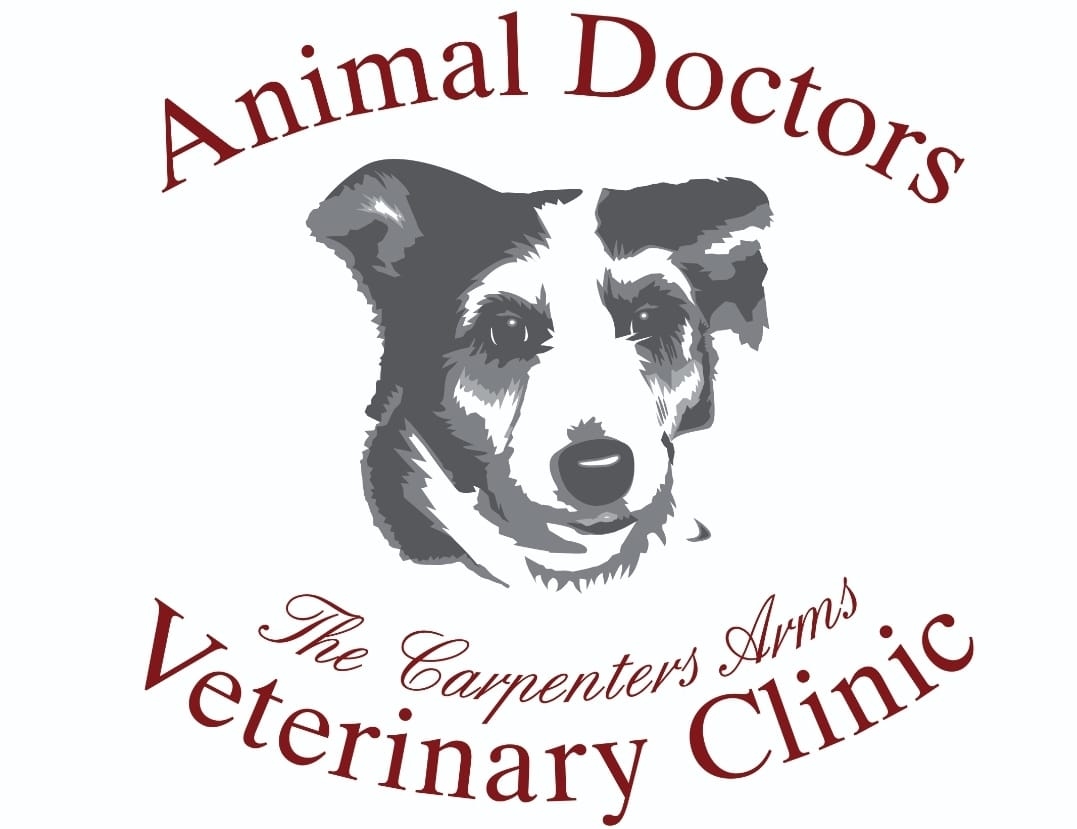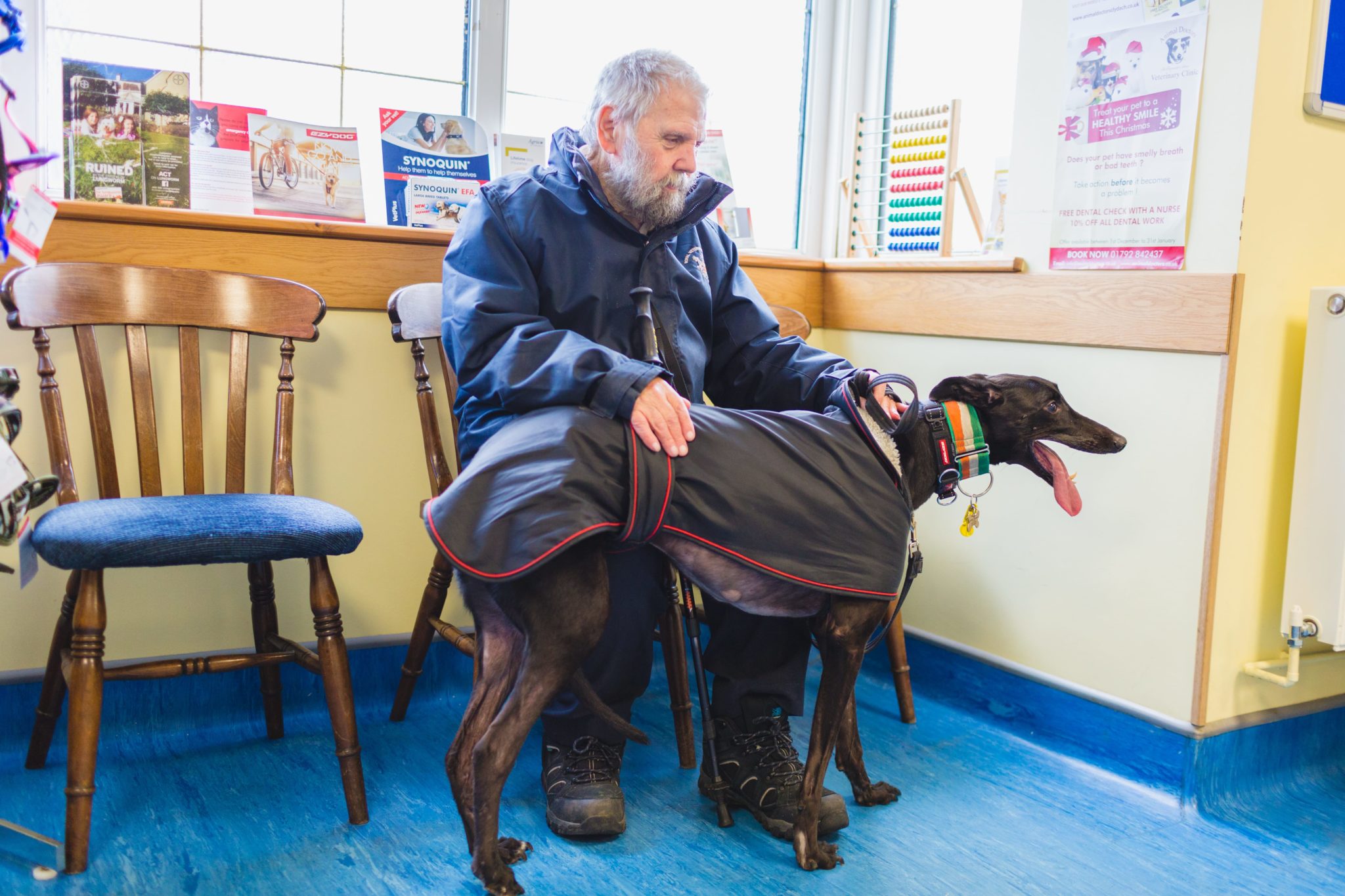Older animals have different needs just like older humans do. We need to adapt our care in order to optimise our pet’s health and happiness.
Diet and weight management
Older animals will usually move less so a lower calorie diet could be the option to prevent weight gain. There are many specific
diets around for senior patients which should benefit their bodies. We can advise you on particular ones if requested. The diet selected depends on the species and the individual – older cats are more likely to lose weight but older dogs are more likely to gain weight – either way, the diet must be altered accordingly. You may offer your pet joint support within their diet to help support the skeletal system. An older pet’s immune system may stop working as efficiently so it might be beneficial to add vitamins and minerals to their daily intake – talk to one of our vets for details.
Mobility
Older animals will have reduced mobility meaning they have a restricted range of movements in their joints. Shorter, more frequent walks are best and you should try to control and monitor the amount of time the animal spends outdoors. A large, sudden increase in exercise level will negatively impact on their joints. It is important to recognise when your pet is in pain and try different methods to minimise it. Some pets enjoy hydrotherapy, being massaged, physiotherapy or acupuncture in order to relieve pain. Each animal is different and if you notice your animal in pain, it is essential to contact the vet. We can determine the cause, provide painkillers and formulate a suitable exercise programme to increase the quality of your pet’s life.
Dental
Most pets only have one set of adult teeth so they are not replaced. Bad breath, bright red gums and stained teeth are key signs of tooth disease – a process which occurs over a prolonged period of time. Periodontal disease occurs when plaque on the teeth is converted to tartar due to substances in the saliva. It then lies at the baseline of the gum causing the bone beneath it to resorb. This can be very painful and can lead to other chronic diseases. To prevent this disease, you can get toothbrushes for your pets, or an easier method (but much less effective) would be to provide your animal with low-calorie dental chews. If disease has already occurred, dental surgery is the best, and often the only, option. Have patience! – Lots of animals lose control of their internal organs. This affects their behaviour and comfort within the house, for example, many animals may start urinating indoors. Remember this may be embarrassing for them and telling them off or punishing them will not improve their bladder strength. It is best to ensure the animal has the option to go outdoors frequently. They may become more out of breath in a shorter period of time on walks, because their heart and lungs become less efficient at providing the muscles with oxygen and removing any waste products. You should not panic if this happens but you should immediately reduce the intensity of the exercise. Older pets require monitoring more and if you notice any changes in breathing, behaviour, physical appearance or attitude, you MUST
see one of our vets as soon as possible.
Grooming
Your pet’s coat growth is influenced by the hormones circulating in their body. If you notice hair is growing irregularly or bald patches are forming, you should
talk to one of our vets about it. Older animals often stop grooming themselves as regularly – this can result in knots in the fur which can be uncomfortable and act as a site for accumulation of foreign bodies and insects to live in. Lack of grooming can affect temperature control too, as many pets will not shed hair between the winter and summer coat. It is therefore better if you personally groom your pet, making sure you clean any longer fur especially, such as the tail or ears of dogs like spaniels. You should keep a check on toenail length too. The length can remain short if they are worn down on hard surfaces but a decrease in exercise level will affect this. If you can hear your pet’s nails on a hard surface or can see the claws in contact with the floor when they are standing at rest, they need to be trimmed a little shorter. This can be done at home if you follow instructions carefully or, alternatively, we can do it here.
Behaviour
Older animals will want to sleep more. They will often appear “lazier” and potentially more fragile. It is worth ensuring there is a bed downstairs so your pet does not experience the discomfort of travelling upstairs in order to nap.
Appointments with us!
Seeing a vet more often may be beneficial to your pet’s health. Senior pet clinics are great to allow your pet to socialise with other animals and to allow us to examine your pet in a friendlier environment. As your animal’s immune system becomes weaker, parasites will find it easier to use them as their host. It is therefore vital that you have regular vaccines and boosters. Regular vet checks allows the vet to perform a physical and clinical examination of your pet
increasing the chances of disease being detected earlier and improving prognosis.
Thus ensuring your pet is living a healthy, enjoyable life!

